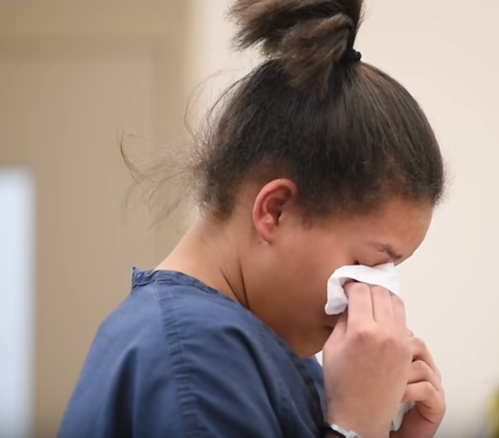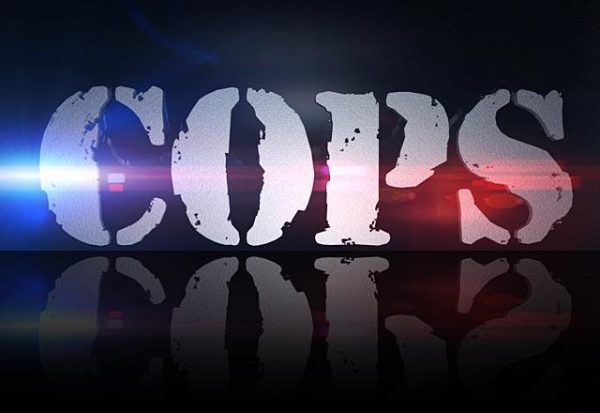 Content warning: This piece contains general discussion of sexual assault and state violence.
Content warning: This piece contains general discussion of sexual assault and state violence.
Last week, Time Magazine published a story about sex worker exclusion from the #metoo phenomenon. Sex workers are a criminalized population vulnerable to sexual assault, composed of people oppressed in many intersectional ways, so the inaccessibility of this newly popularized movement against rape and harassment is particularly egregious. At worst, it seems that only privileged women have access to an individualized #metoo movement. At best, sex workers are told they should have their own separate-but-equal movement in a manner which reinforces popular misconceptions about the sexual violence we face as intrinsic to sex work and our clients rather than stemming from stigma and the state.
In reality, much of the abuse and violence sex workers face comes from institutions like the police. This makes participating in a sex worker #metoo difficult since it entails calling abusers in positions of power to account.
Police are guilty of routinely targeting marginalized women and raping them. They prey on women whose allegations against police are rarely taken seriously. These women include sex workers (especially street and survival sex workers), women of color, trans women, and drug-using women—most often, women who are part of many or all the above groups. We are told to stand up for ourselves and report sexual assaults to the police, but when the abuser is the police, it becomes impossible to report it. A Brooklyn teenager tried to report a sexual assault committed by two police officers. Nine officers showed up en masse at the hospital she was in to convince her not to do a rape kit. Predatory police officers are commonly simply shuffled from one department to another when suspected of sex crimes.
In Alaska, the police are allowed to engage in sex acts before arresting a sex worker. This system of rape-as-entrapment results in only the provider being arrested. In Oakland, police officers had sex with an underage sex working teen in exchange for information about future busts. Only three of the men involved were convicted and the victim was sent away by the department to an out of state rehab facility in an attempt to shut her up. NYPD officer Raul Olmeda was paid to investigate sex trafficking. Instead, he paid an underage girl for sex and filmed their numerous encounters. It took seven months after police seized his computer for charges to be filed against him. A Phillipsburg police officer demanded free sex from two Backpage providers, threatening arrest. The officer, Justin Sanderson, had a history of sexual harassment at other law enforcement jobs and yet he was still able to gain employment in Phillipsburg. When sex workers get in trouble, we are not as immune to consequences as Sanderson was—when we are arrested, our records are tainted and we are not able to skip from job to job. This is one of many reasons why the threat of arrest has historically been very effective for rapist cops to wield against sex workers. Ex-Oklahoma City police officer Daniel Holtzclaw assaulted 13 Black women and young girls, many of them drug-using sex workers and almost all possessing records. It was only because the thirteenth Black woman he assaulted had a clean record and friends within the police department that the other twelve women’s reports became credible. It’s rare that officers are held accountable for being sexual predators the way Holtzclaw was. The majority of police departments do not have a training program for on-duty police officers to teach them to avoid sexual misconduct toward citizens, let alone ones training them to behave themselves appropriately specifically towards sex workers.
Confronting this police abuse is next to impossible for sex workers. Some of us have been arrested after police engaged in sexual activities with us. Some of us have been raped by cops who threatened us with arrest if we spoke out. Some of us have been assaulted and bullied by men posing as police officers. Police harassment can literally ruin our lives. Early last November, a migrant Brooklyn sex worker died jumping out of a window in order to avoid being re-arrested and deported during a brothel raid, after local cops carried out a campaign of terror to pressure her into becoming a confidential informant. The police are major perpetrators of violence against sex workers, whether as abusive individuals or as an oppressive system of state violence, and most of us are not in a position to speak out against them.
Judges also hold prejudices against sex workers. In Philadelphia, Judge Teresa Carr-Deni reduced a gang rape charge to “theft of services”, leaving the sex worker victim without justice. Several states make sex workers ineligible to receive rape victim compensation funds due to the criminalization of our work. In Indiana, for example, “a victim who was injured while committing, attempting to commit, participating in or attempting to participate in a criminal act” is ineligible for victims’ compensation.
When the entire apparatus of law enforcement and criminalization contributes to sexual violence against sex workers, it’s difficult to understand how an individualized, neoliberal movement like #metoo has become can help. Standing up against specific abusers, however powerful they are, cannot do much when an even more powerful system continues to create the conditions of our abuse. While the Time piece does devote a few paragraphs to police sexual abuse of sex workers—most notably, referencing the results of a 2016 Department of Justice report on the Baltimore police which found that the department ignored sexual assault reports made by sex workers and many officers raped sex workers after threatening incarceration—what it and other mainstream media reports on the topic miss is that criminalization and state violence are responsible for the particularly vicious rape culture we sex workers live with. When will it be #timesup for rapist cops—or for a criminal justice system which legitimizes that rape as an investigation technique and would rather jail us and reward our abusers?



